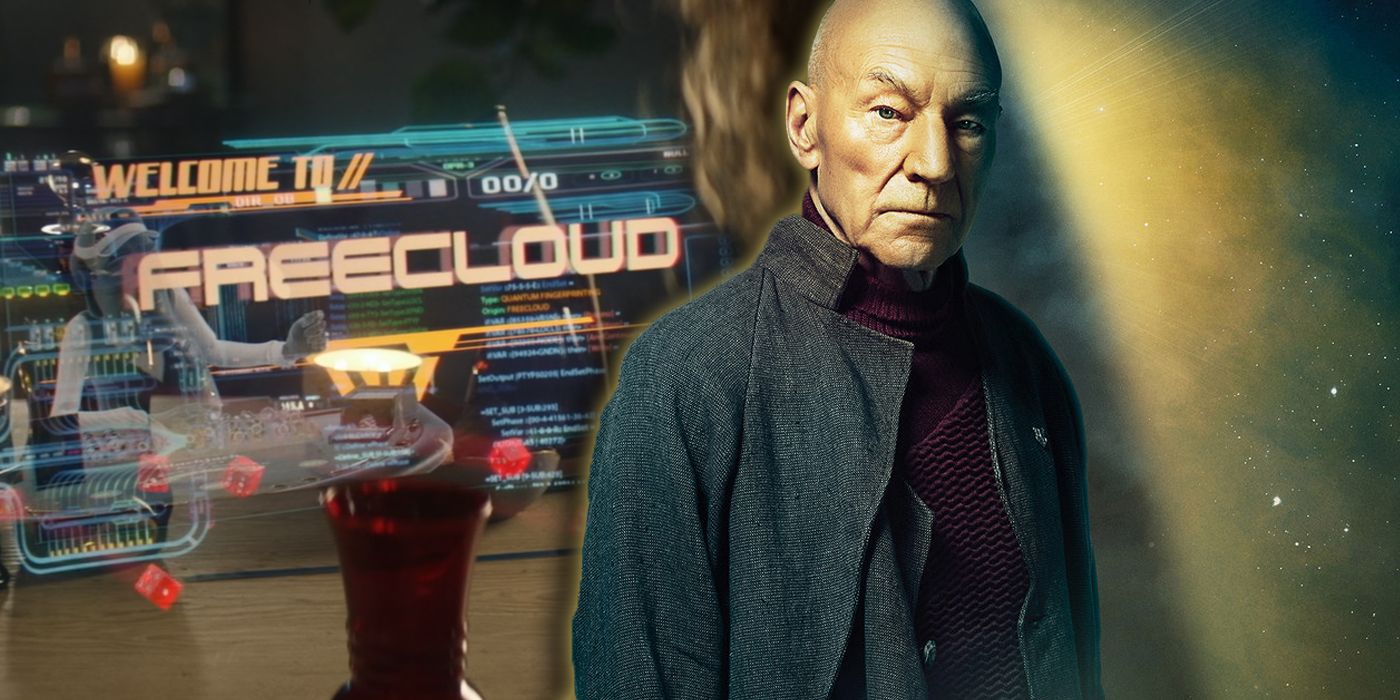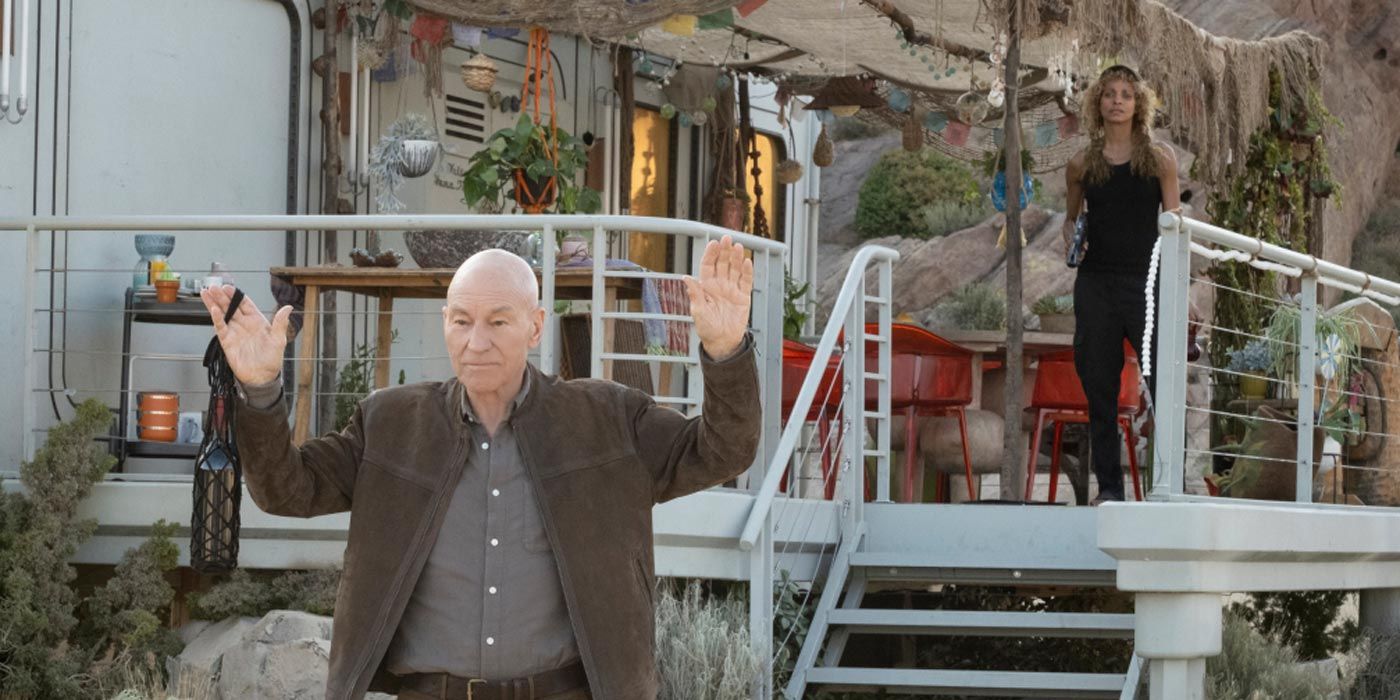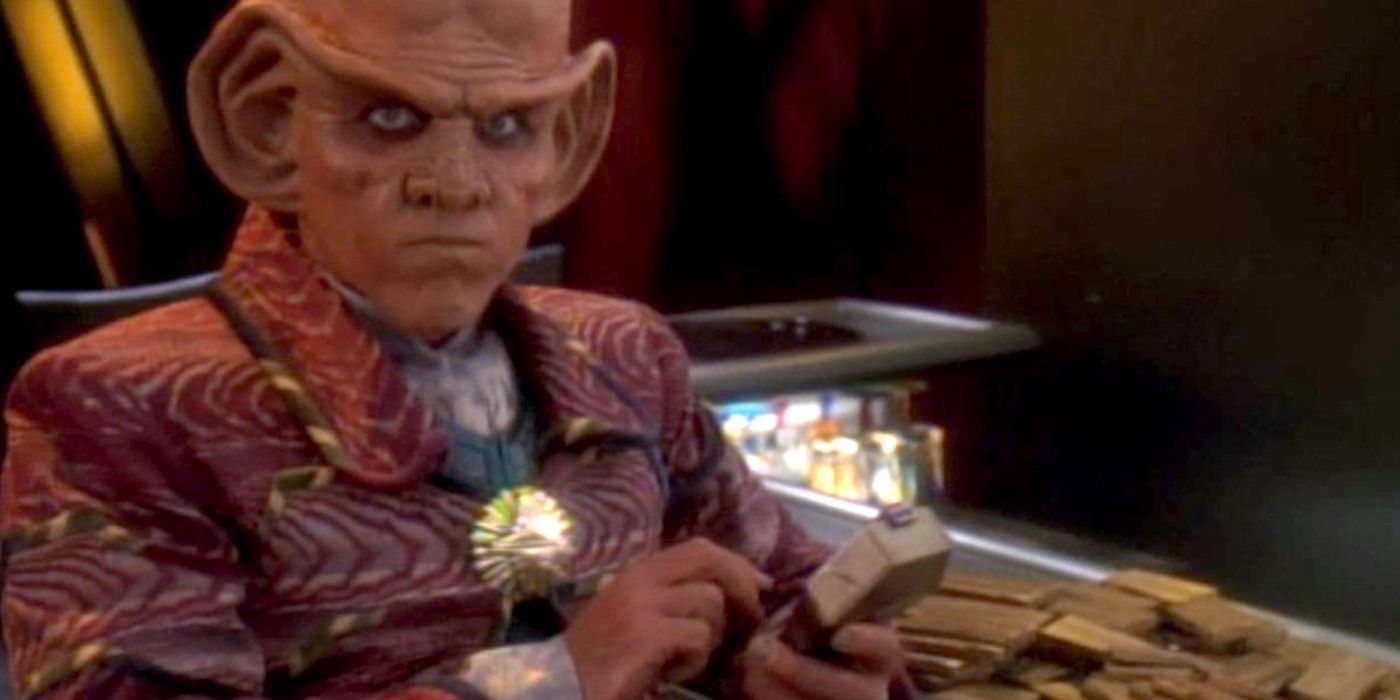WARNING: The following contains spoilers for Season 1, Episode 3 of Star Trek: Picard, “The End is the Beginning,” now streaming on CBS All Access.
Star Trek: Picard has spent a good chunk of its time introducing us to the Federation’s new status quo while setting up a mystery worthy of bringing Jean-Luc out of retirement. However, there’s still one mystery that has been plaguing the entire franchise since its inception, and Picard is only making things more confusing. Do people in the Federation still use money, especially by the time of Picard?
Franchise creator Gene Roddenberry established that the Federation has no currency and that everyone simply pursues their passion without compensation long ago. Federation citizens are supplied with all their basic needs met, at no cost. Because the majority of Star Trek is set in uncharted space, it’s very easy to handwave the specifics of how such a society could function. However, Picard has spent a lot of time on Earth, and it’s gotten hard to understand just how the Federation’s economy works.
In the third episode “The End is the Beginning,” when Jean-Luc is talking to Raffi she seems bitter and jealous of his chateau and the luxury he lives in compared to her home, which is essentially a trailer in the desert. This makes it very unclear how resources are spread in the Federation. It’s been established that the chateau has been in his family for centuries. Their exchange leaves the impression that his family just lucked out and got to keep their land when the Federation abolished currency. The disparity between Jean-Luc and Raffi’s standards of living seems contrary to what we’ve been told life is in the Federation. It’s certainly not fair.
Later in that same episode, we are introduced to Christóbal Rios, a disgruntled ex-Starfleet pilot who now commands his own ship. He straight out says that Picard is compensating him handsomely for his services. But it's not clear what that compensation entails. Going by what's shown on-screen alone, all Jean-Luc seems to do is show up and offer people free bottles of his wine. But if there's no money in the Federation, it's not clear how Rios even got his ship in the first place.
Then there’s the matter of Raffi and her reason for joining Picard on his mission. Their first stop is a gambling den called Freecloud, and it is heavily implied that she’s only coming along to settle her debts there. But in order to be in debt, Raffi would need to have had money to lose.
And make no mistake, money definitely still exists in Star Trek. In fact, the Federation seems to be an exception to greater galactic society. The bulk of space-faring sentient races still engage in some form of capitalism. In fact, races like the Ferengi who were known for their obsession with gaining wealth, which was played a meaningful role in Star Trek: Deep Space Nine. The closest thing they have to a religious text is called The Rules of Acquisition, which is entirely composed of financial advice.
Past Star Trek creatives have chafed against Roddenberry’s mandate that the Federation doesn’t use money. Ronald D. Moore, who worked on The Next Generation and Deep Space Nine called the notion “a bunch of hooey.” However, Roddenberry was adamant on this point and the writers, for the most part, have respected his wishes.
While writers were stuck with accepting that aspect of Star Trek lore, they did manage to explain how the Federation as a whole does business with foreign powers like the Klingons. They created a little-mentioned currency called Federation Credits. While individual citizens of the Federation have no income, the government does have capital and uses Federation Credits to participate in trade and compensate all non-Federation peoples.
But these rules don’t quite seem to be in play with Picard. There’s too much talk of compensation, inequality, and debts to suspend disbelief and buy into Roddenberry’s utopian promise. If it hasn’t changed and Federation citizens truly still don’t have any money, then the series has set up some pretty glaring inconsistencies that need to be addressed.
Star Trek: Picard stars Patrick Stewart, Alison Pill, Michelle Hurd, Evan Evagora, Isa Briones, Santiago Cabrera, and Harry Treadaway. New episodes of the series premiere every Thursday on CBS All Access.



